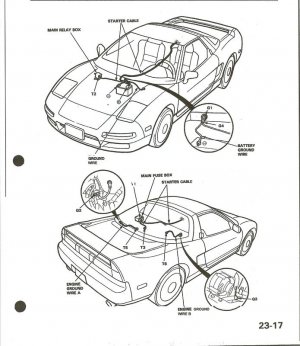- Joined
- 10 February 2013
- Messages
- 51
I posted this on the Prime Facebook group a couple weeks ago but wanted to get some more feedback. My car occasionally takes several seconds to start. It seems to happen randomly, and only about 1 in 10 starts. When it happens, it sounds like the starter is struggling to crank the engine.
The first time this happened a month ago was after I drove the car and left it in the outdoor heat for an hour. First start took about 3-4 seconds, then subsequent starts were back to normal.
I got the battery tested at O'Reilly and it apparently wasn't fully charged. So they charged it and performed a load test, which passed with no issues. I also used a multimeter to test the battery voltage with the engine on vs off. IIRC, engine off voltage was around 12.6V while engine on voltage bumped up to 14 something and held steady.
Last weekend I drove the car hard on the track for 5 x 20min sessions, turned it off for a while, and it struggled to start again. But this time the subsequent 2 or 3 starts were also slow. Only when I cranked the car several times in a row did it go back to normal.
At this point, I'm not sure how to diagnose the issue. Any ideas?
The first time this happened a month ago was after I drove the car and left it in the outdoor heat for an hour. First start took about 3-4 seconds, then subsequent starts were back to normal.
I got the battery tested at O'Reilly and it apparently wasn't fully charged. So they charged it and performed a load test, which passed with no issues. I also used a multimeter to test the battery voltage with the engine on vs off. IIRC, engine off voltage was around 12.6V while engine on voltage bumped up to 14 something and held steady.
Last weekend I drove the car hard on the track for 5 x 20min sessions, turned it off for a while, and it struggled to start again. But this time the subsequent 2 or 3 starts were also slow. Only when I cranked the car several times in a row did it go back to normal.
At this point, I'm not sure how to diagnose the issue. Any ideas?







